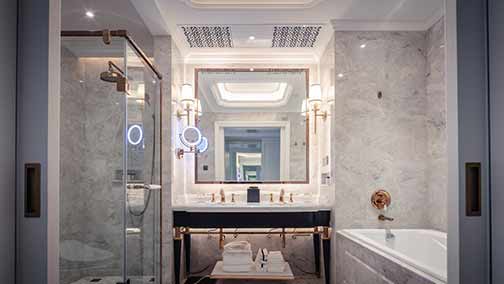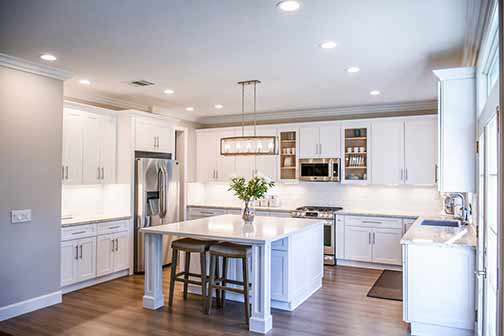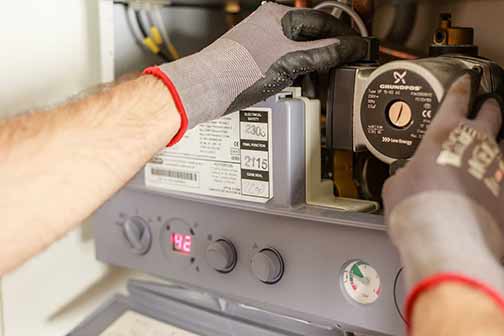
Home renovation projects often bring a sense of excitement and a fresh start. Whether you’re updating your kitchen, bathroom, or any other space in your home, these projects are an opportunity to breathe new life into your living environment.
However, while aesthetics are usually at the forefront of our minds, one critical aspect that should never be overlooked is plumbing. Plumbing plays an essential role in home renovation, and addressing it properly ensures that the beautiful updates you envision will function as seamlessly as they look.
Understanding the Role of Plumbing in Home Renovations
Plumbing is the backbone of any functional home. It encompasses the systems that bring water in and out, facilitate drainage, and support essential appliances like sinks, toilets, and washing machines. The plumbing system must often be adapted, replaced, or upgraded during renovation to meet the new design’s demands.
Even minor renovations can impact existing plumbing structures, and if not planned correctly, they can lead to major complications later. Understanding and appreciating the critical role plumbing plays in a renovation project can save homeowners from expensive and time-consuming fixes down the road.
Kitchen Renovations: Plumbing Essentials
The kitchen is one of the most common areas for renovation, and plumbing is integral to its functionality. Whether upgrading your kitchen for a modern aesthetic or creating a more open-plan space, it’s crucial to understand how plumbing impacts your design choices. For instance, if you plan to move the sink or add a dishwasher, you will likely need to reroute existing pipes and drainage systems. The same goes for adding a kitchen island with a sink or setting up a more sophisticated water filtration system.
During these changes, working with a professional plumber who can properly plan and execute the relocation of pipes and fixtures is essential. Without expertise, these modifications could cause leaks or drainage problems, which could become major concerns over time. Always ensure that plumbing is part of your early discussions when planning a kitchen renovation. By addressing plumbing needs early, you can avoid costly alterations once the project is underway.

Bathroom Renovations: An Opportunity for Upgrades
Bathrooms, like kitchens, rely heavily on plumbing. Renovating a bathroom is an excellent opportunity to enhance appearance and upgrade outdated plumbing systems. Modern fixtures, such as dual-flush toilets, rain showers, and touchless faucets, often require updated plumbing infrastructure to operate efficiently.
Additionally, incorporating new features like bathtubs, walk-in showers, or underfloor heating systems may necessitate alterations to the existing plumbing layout.
The Impact of Plumbing on Structural Integrity
Plumbing isn’t only about fixtures and fittings; it also affects the structure of your home. Improperly installed or damaged pipes can lead to leaks and, over time, cause severe structural damage. Water damage can weaken the foundation, compromise the integrity of walls and ceilings, and even cause electrical hazards.
Therefore, plumbing must be carefully assessed and planned during any renovation, whether you’re expanding a room, adding a new bathroom, or upgrading your basement.
Choosing the Right Professionals for Plumbing Work
Given the complexity of plumbing work, especially during renovations, hiring a qualified professional is vital. Skilled plumbers have the expertise to assess your home’s current plumbing system and integrate any necessary changes seamlessly. While DIY plumbing might seem appealing to save costs, mistakes can be expensive and dangerous. Only a certified professional can ensure that the plumbing work complies with local codes and regulations, guaranteeing that your renovations are both safe and legal.
Moreover, experienced plumbers can offer valuable advice on optimizing your renovation project. They may suggest energy-efficient solutions, such as installing tankless water heaters or eco-friendly fixtures that reduce water consumption. These insights can be invaluable, not only in improving the functionality of your space but also in increasing your home’s value.

Integrating Storage Needs into Your Renovation
When tackling renovation, homeowners often overlook the logistics of managing their belongings. Planning for storage solutions is essential, especially when dealing with extensive renovations that require removing furniture, fixtures, and other home items. Storage units offer an efficient way to keep your belongings safe and accessible throughout the renovation process.
For instance, if you’re based in Boise and need a reliable solution, Peasley Transfer & Storage Boise provides convenient and secure options to help you manage your space while your renovation is underway. This ensures that your renovation proceeds smoothly without worrying about damage to your possessions.
The Long-Term Benefits of Proper Plumbing Renovations
A well-planned and executed plumbing renovation can significantly enhance your home’s functionality, safety, and comfort. It ensures that your home remains resilient against potential water-related damage and reduces the likelihood of costly repairs down the line. Furthermore, modern plumbing systems contribute to improved energy efficiency, lowering your monthly bills and benefiting the environment.
From enhancing water pressure to reducing waste, investing in high-quality plumbing during your renovation means you’ll enjoy a more convenient and efficient home. By making these upgrades, you’ll also have the peace of mind that comes with knowing your home’s infrastructure is built to last.
Common Plumbing Mistakes to Avoid During Renovations
While the benefits of addressing plumbing in renovations are numerous, homeowners must also be aware of common mistakes that can occur. One of the most frequent issues is underestimating the extent of plumbing work needed. It’s important to have a thorough inspection before starting the renovation to identify any hidden problems, such as corroded pipes or poor drainage.
Another mistake is failing to coordinate plumbing plans with other renovation elements. Plumbing should be integrated into the overall project plan, ensuring that pipes and fixtures align with the design layout. By working closely with your contractor and plumber, you can avoid complications like pipes being located too close to electrical systems or inaccessible areas.
Lastly, cutting corners to save on costs can result in poor-quality work or materials, leading to long-term issues. Investing in professional plumbing services and quality materials pays off, guaranteeing that your renovation will be safe, efficient, and durable.
Conclusion: The Critical Role of Plumbing For a Successful Home Renovation
Plumbing is more than just pipes and fixtures. It is a crucial part of any home renovation. It impacts your home’s structure, functionality, and value. By recognizing the importance of plumbing early in the planning stages, homeowners can ensure their projects are successful. This helps avoid costly mistakes and future complications.
Whether you are renovating your kitchen, bathroom, or any other space, it’s essential to incorporate proper plumbing solutions. Investing in professional services is also key. This approach creates a safe, efficient, and comfortable home that stands the test of time.

